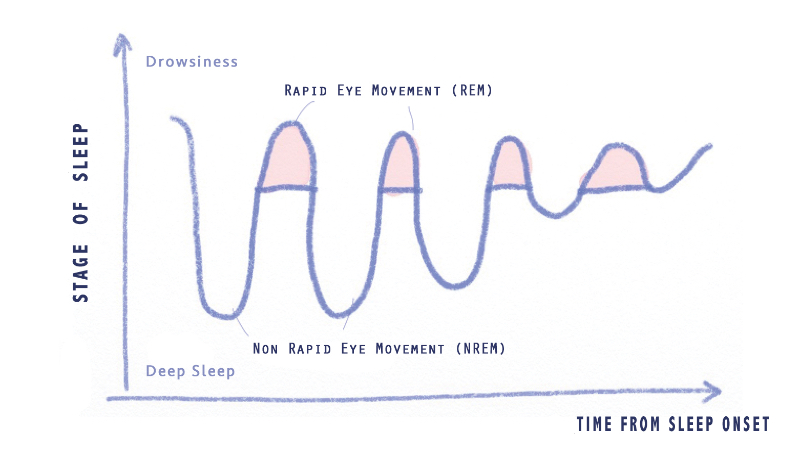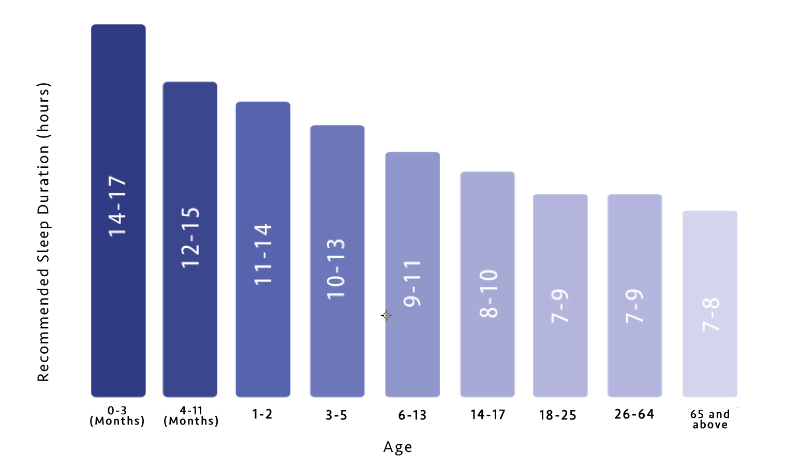Sleep – Quick Facts
◅ Sleep & ASDSleep stages
When we sleep, we go through cycles of sleep stages, namely the non rapid eye movement (NREM) and rapid eye movement (REM).
NREM sleep is made up of stage one, stage two and stage three (deep sleep). When you go through deep sleep, your heart rate, blood pressure, body temperature and respiration rate decrease.
REM sleep is characterised by rapid movement of the eyes. Also during this stage of sleep, most muscles are in a relaxed state. Heart rate, blood pressure and body temperature increase. Respiration becomes irregular. Also, dreams commonly occur in this stage.
As we fall asleep, we normally go through NREM sleep initially, followed by REM sleep around 60-90 minutes after sleep onset. After that, NREM occurs again. Throughout a night, we go through around 4-6 cycles. While the duration of deep sleep gets shorter progressively, we get more and more REM sleep towards later stages of sleep.

How much sleep is enough for my child?
Sleep deprivation can pose negative impacts on a child's daily functioning and increase emotional and behavioural problems. Therefore, it is important to make sure your child gets adequate amount of sleep
Sleep needs are related to age. Parents are advised to take note of how much sleep your child needs at his/her specific age.
However, there are individual differences in sleep needs.
In order to make sure their child gets‘adequate sleep’according to the recommended sleep duration, some parents try to put their child to bed very early, making the child toss and turn in bed for a few hours. Over-early bedtimes can make it even more difficult for a child to fall asleep.
Parents should take the recommended sleep duration for reference – it is important to also observe the actual sleep needs of your child by observing him/her in the day time – for example, whether he/she struggles to get out of bed in the morning, or whether he/she feels fatigued in the day. This helps parents get a sense of the child's actual sleep needs and whether he/she gets enough sleep in the night.

Napping
Does my child need to take naps?
Most children give up their naps at 4-4.5 years. If a child really needs an afternoon nap, it is recommended to arrange the nap between 12-1 p.m. in the afternoon. It is advised not to let your child nap after 4 p.m. A reasonable nap duration is 5-15 minutes, and 30 minutes is the recommended maximum. The longer your child is awake during the day, the more ‘sleep pressure’ builds up, which ensures a faster and sounder sleep.
Therefore, long naps will affect the child's sleep at night. Therefore, as your child grows up, parents should help incorporate his/her nap into night time sleep.
